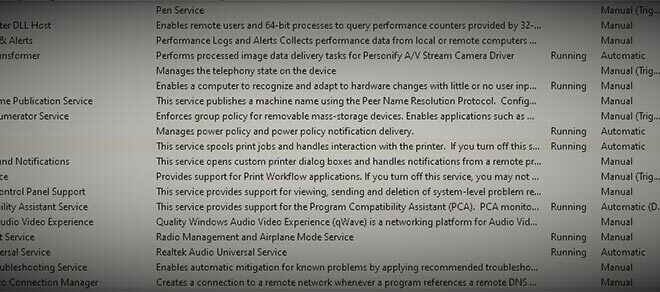The Risk of Burnout in IT

This feeling is familiar. The feeling that there is so much to do, but there is nowhere to start and a sense that you’ve lost control. A storm of constant exhaustion, making frequent mistakes, and being checked out from most social interactions. I’m not exactly sure when it started, but I know this has been increasing over the last few months. I want to keep being the person my friends, family, and co-workers have come to rely on, but I have lost the interest. My curiosity in solving problems is feeling more like a grind versus a flow.
Know what that sounds like? Burnout. Burnout is defined as exhaustion of physical or emotional strength or motivation usually as a result of prolonged stress or frustration. It’s a condition that’s been on the rise in our industry for years and was only recognized this year by the World Health Organization.
In the nearly 20 years I’ve worked in Information Technology, I’ve been in this predicament twice. The first time I experienced burnout, it was brought to my attention by my doctor and I stayed away from the industry for over a year. In the second instance, I wasn’t recognizing the signs until I was at Microsoft Ignite 2018 where Sonia Cuff was speaking about her experience with burnout, and then it hit me like a deer in headlights. As I returned back home I knew I had to change how things were going.
As I worked on my path toward resolving my burnout the 2nd time, I wanted to make sure I didn’t make any decisions that I would later regret. I sought help from my therapist and did things to take better care of myself. I made a goal to bring awareness and advocate for my local community. My first step in that was by standing in front of my coworkers and presenting on burnout using what I learned both at Ignite and through my experiences. As a result, many of them began having more honest conversations about stress, life, and priorities between the each other and start to take ways to defend themselves against burnout. My HR department continues to get comments about that talk, and to see the effect it had, was awesome.
Overall, when I look back to where I was a year ago, my life and professional career have changed considerably and I am appreciative I was able to get through this instance of burnout better than the first time. They say that once you get burnout, you’re more likely to get it again. I am a living example of that.
Factors That Can Lead to Burnout
Knowing what can lead to burnout is a great step in managing the risk of developing it. Much like other parts of our health, it’s important that we balance the demands of life and work in an appropriate way that works for us as an individual. While there is no definitive series of events that can cause burnout, these are some common factors myself and others have found contribute to it:
- You love your job or take pride in your work.
- You are relied upon.
- You take on tasks without consideration for capacity, only ability.
- You may be on-call frequently.
- You may support “mission critical” systems.
- Being on a “rock star team”.
- Not feeling like you belong on the team, in the workplace, or in your community.
- Lack of support.
- Politics, Cliques, and Sabotage.
- Unequal work tasks.
- Unequal compensation.
- Unclear vision or direction.
- Lack of resources.
- Behavior of organization may not match values, or constantly changes.
You may be reading these and going… “Isn’t this the typical stuff we face in IT?”, and it’s true. That’s what makes our field prime for people developing burnout. This is not to say that you can’t support mission critical systems for example, but that being over relied upon and never able to disconnect, could be leading us down a dangerous path in the future.
Signs of Burnout
There are many ways in which someone feels or experiences life when they are in a state of burnout. Due to this, it can be hard to identify it in ourselves or others as we can mistake it for just being stressed out. Having a sense of empathy and awareness can go far in helping you know who may be on the verge of or in a state of burnout.
So here are just some of the signs you should look out for:
- Feeling tired and drained most of the time.
- Lowered immunity and frequent illness.
- Changes in appetite or sleeping habits.
- Frequent headaches or muscle pains.
- Sense of failure and self-doubt.
- Feeling helpless, trapped, and defeated.
- Detachment, feeling alone in the world.
- Loss of motivation.
- Increasingly cynical or negative outlook.
- Decreased satisfaction and sense of accomplishment.
- Downplaying contributions and staying quiet during meetings.
- Making more frequent mistakes.
- Avoiding social chatter.
- Withdrawing from responsibilities.
- Isolating yourself from others.
- Procrastinating.
- Skipping work, coming in late, or leaving early.
- Taking out your frustration on others.
- Using food, drugs, or alcohol to cope.
- Physical tremors or shakes.
- Emotional reaction to phone, email, or messaging.
This list was only to name a few but can be a good start to getting to know when burnout could be on the horizon. Remember that it can be easy to dismiss any of these as just being stressed out, or just not enough sleep, but even in those cases, we should be working to help one another because reaching out could just save someone’s life.
In my next blog post I’ll cover the ways we can help ourselves or others in dealing in burnout. If you can’t wait, feel free to watch the talk I did that I adjusted for public viewing, available here.
Have you experienced burnout? What are some ways you were feeling, or what may have contributed? Comment below!











